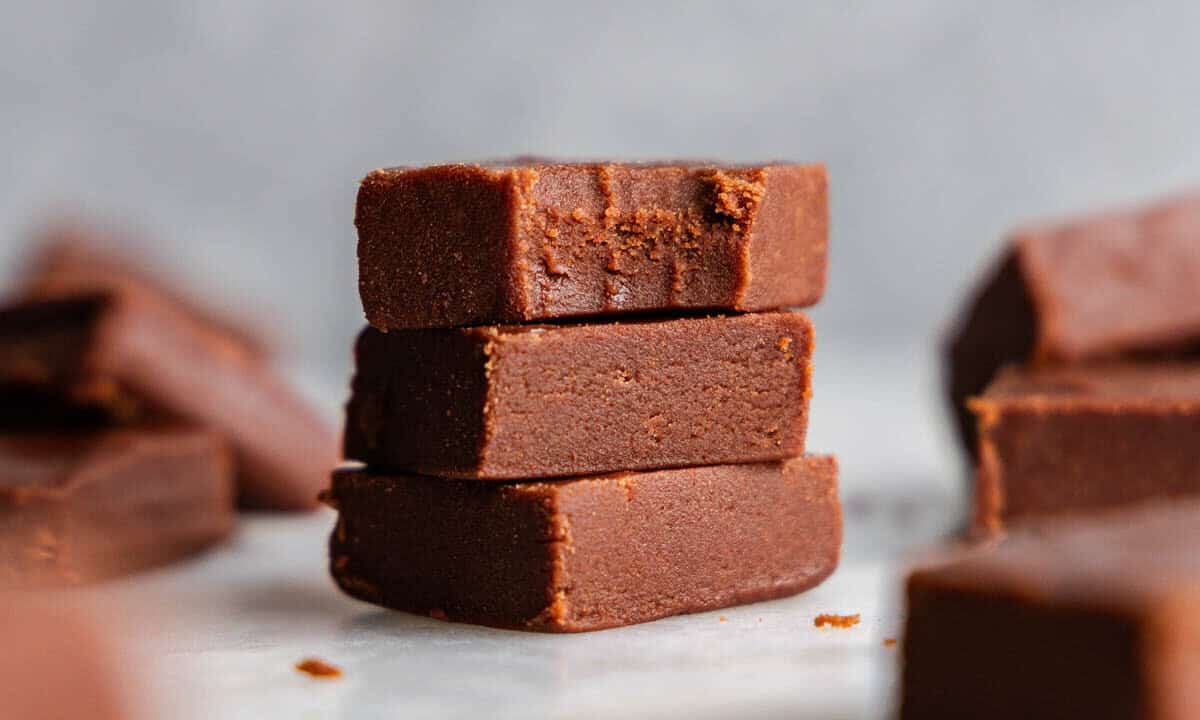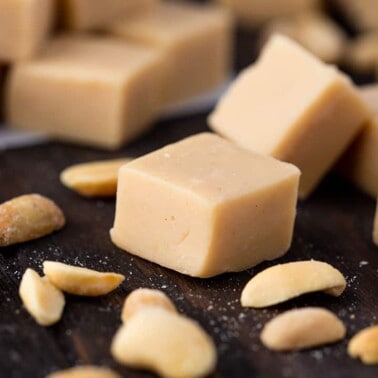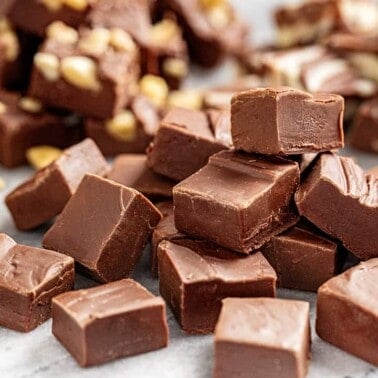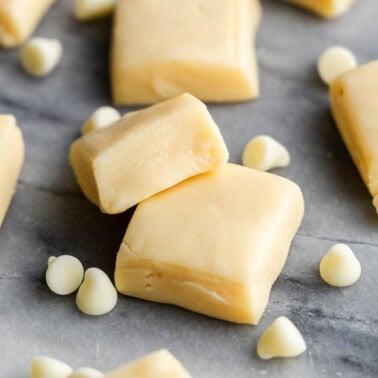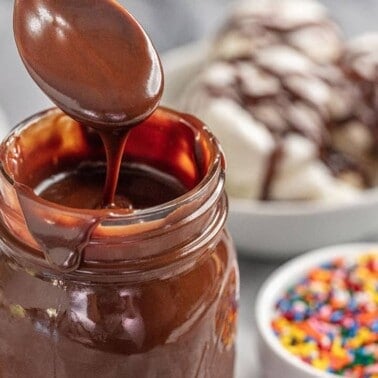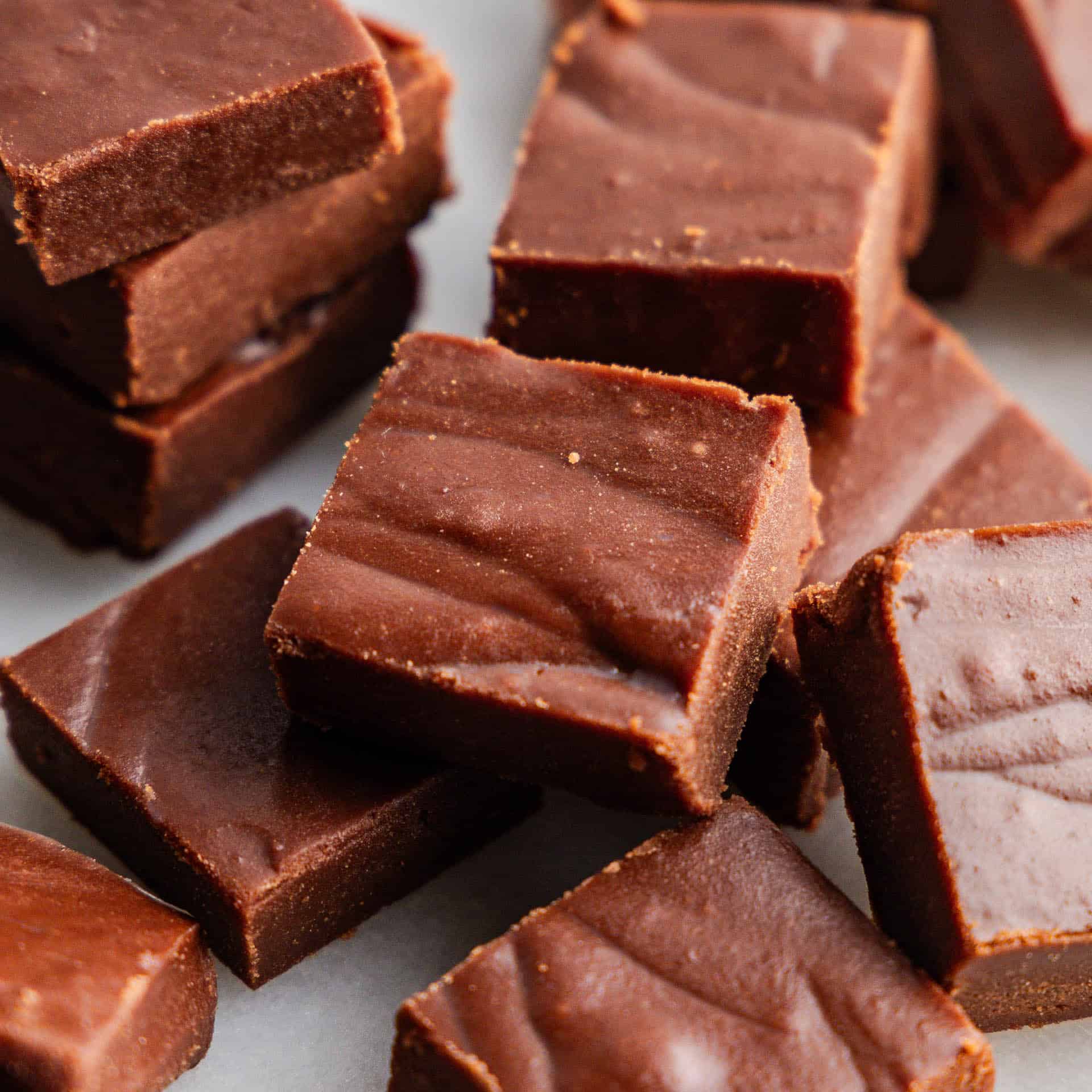We’re here to show you just how simple it is to make classic old-fashioned fudge. With only six ingredients and a little candy-making know-how, you’ll be creating creamy fudge in no time. Whether you’re a candy-making beginner or a seasoned pro, this recipe is designed to deliver perfect results every time. Say goodbye to store-bought fudge and hello to a new favorite treat made right in your kitchen.
While you are at it, treat yourself to Grandma’s Homemade Caramels and our Quick and Easy Toffee.
Why Our Recipe
- We use a little food science to make sure your fudge is always smooth and never grainy.
- Simplifies the candy-making process using just six basic ingredients.
- Grab a candy thermometer or learn to master the soft-ball stage by hand.
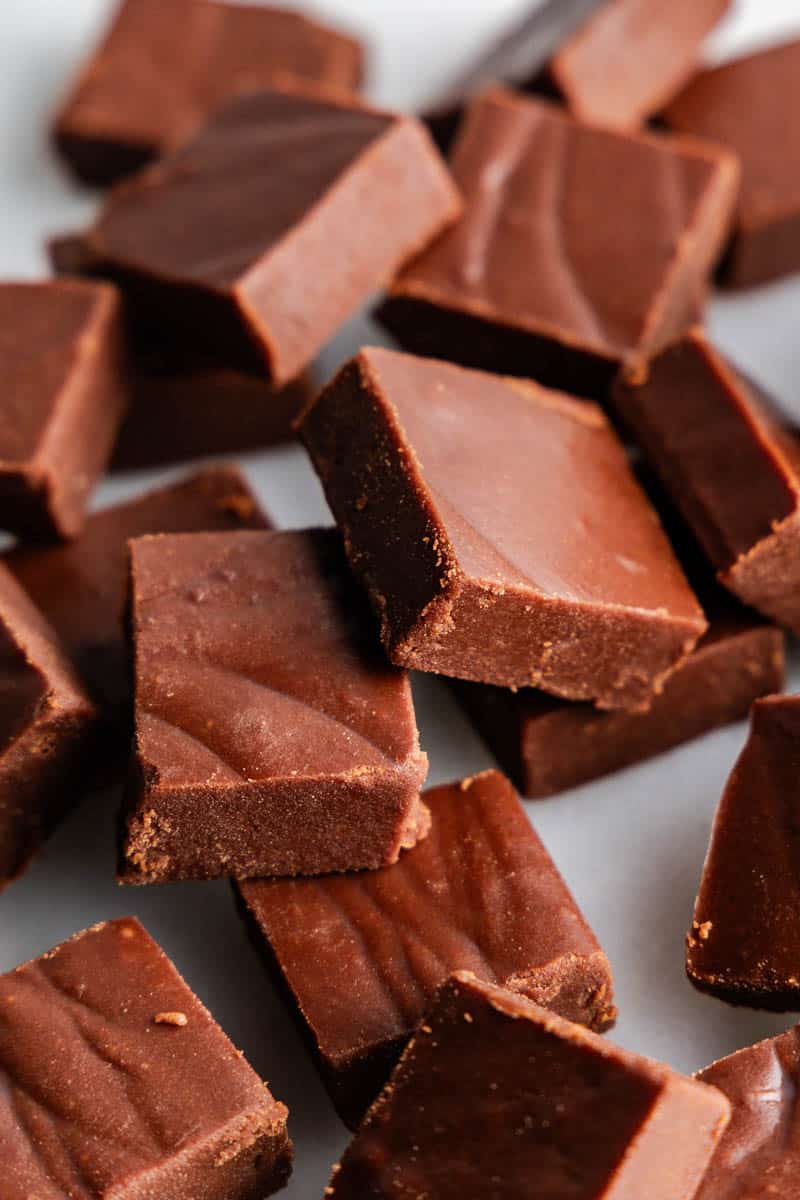
This fudge recipe relies on food science to make sure you get it right. A candy thermometer will help you nail the soft-ball stage, but don’t worry if you don’t have one—we’ll guide you through how to do it by hand too! The result is a melt-in-your-mouth piece of chocolate goodness that’s perfect for holiday gifting, party platters, or simply treating yourself.
Ingredient Notes
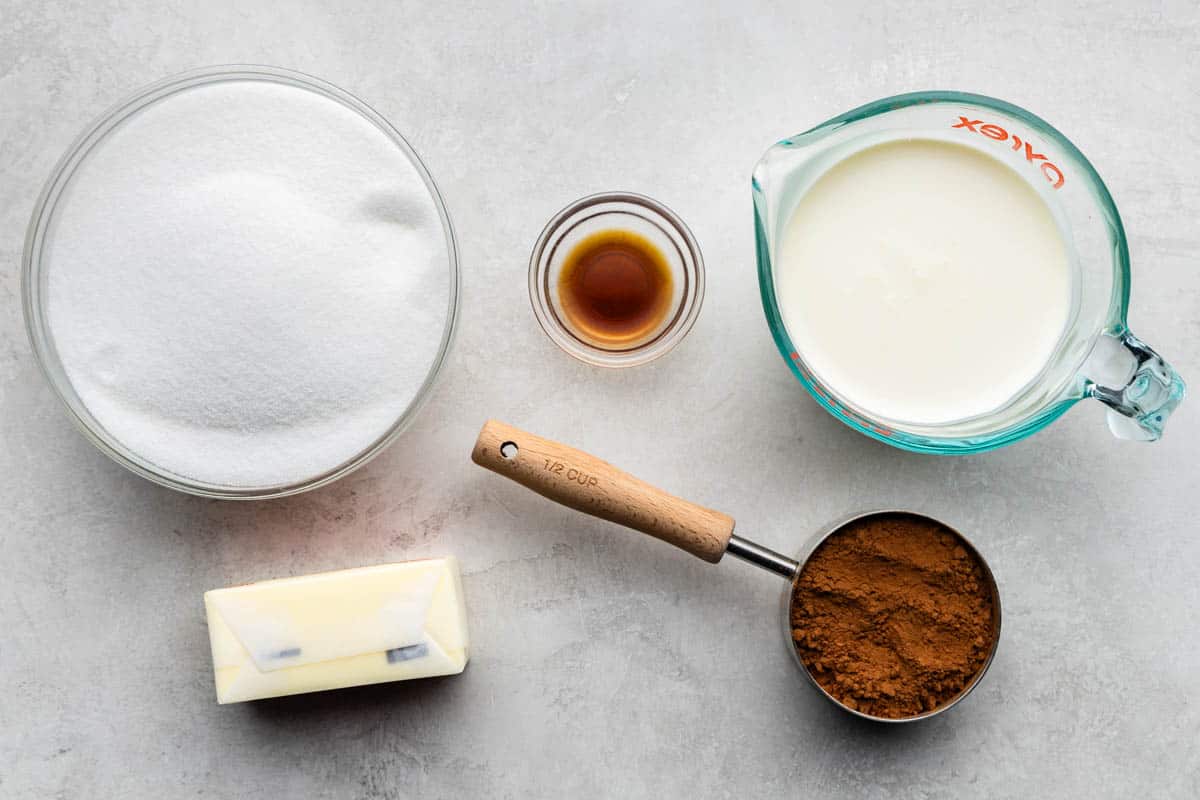
- Granulated Sugar: Use regular granulated sugar.
- Unsweetened Cocoa Powder: Go for a high-quality cocoa powder for a richer chocolate flavor. Dutch-processed cocoa can also be used.
- Heavy Cream: Provides creaminess and richness. Avoid substituting with milk or half-and-half, as the fudge may not set properly.
- Corn Syrup: Helps prevent the sugar from crystallizing, ensuring a smooth texture. Light corn syrup works best here. This is not the same thing as high fructose corn syup.
- Salted Butter: If using unsalted butter, add a pinch of salt to the recipe as salt enhances the flavor of chocolate.
- Vanilla Extract: Gives a smooth finish and enhances the flavor of chocolate.
Food Science: Corn Syrup
Our test kitchen experiments showed that adding a small amount of corn syrup significantly smoothed out the fudge. It’s a little food science at work! Corn syrup is an invert sugar, and invert sugars are used to prevent crystallization. This means your fudge will set with a creamy, melt-in-your-mouth texture rather than turning grainy. If you’ve ever had fudge that’s a bit gritty, this small addition makes all the difference.
Variations
This classic fudge recipe is a perfect base for adding your favorite flavors and mix-ins. Here are some ideas to get creative:
Flavor Extracts: Swap out or complement the vanilla extract with almond, orange, or coconut extract. Use 1/2 teaspoon.
Nuts: Stir in 1/2 to 1 cup of chopped walnuts, pecans, pistachios, or almonds for crunch.
Peppermint: Add 1/2 teaspoon peppermint extract and sprinkle crushed candy canes on top.
Marshmallows: Fold in mini marshmallows after stirring the fudge for a rocky road twist.
Sprinkles: Top the fudge with colorful sprinkles for festive fun.
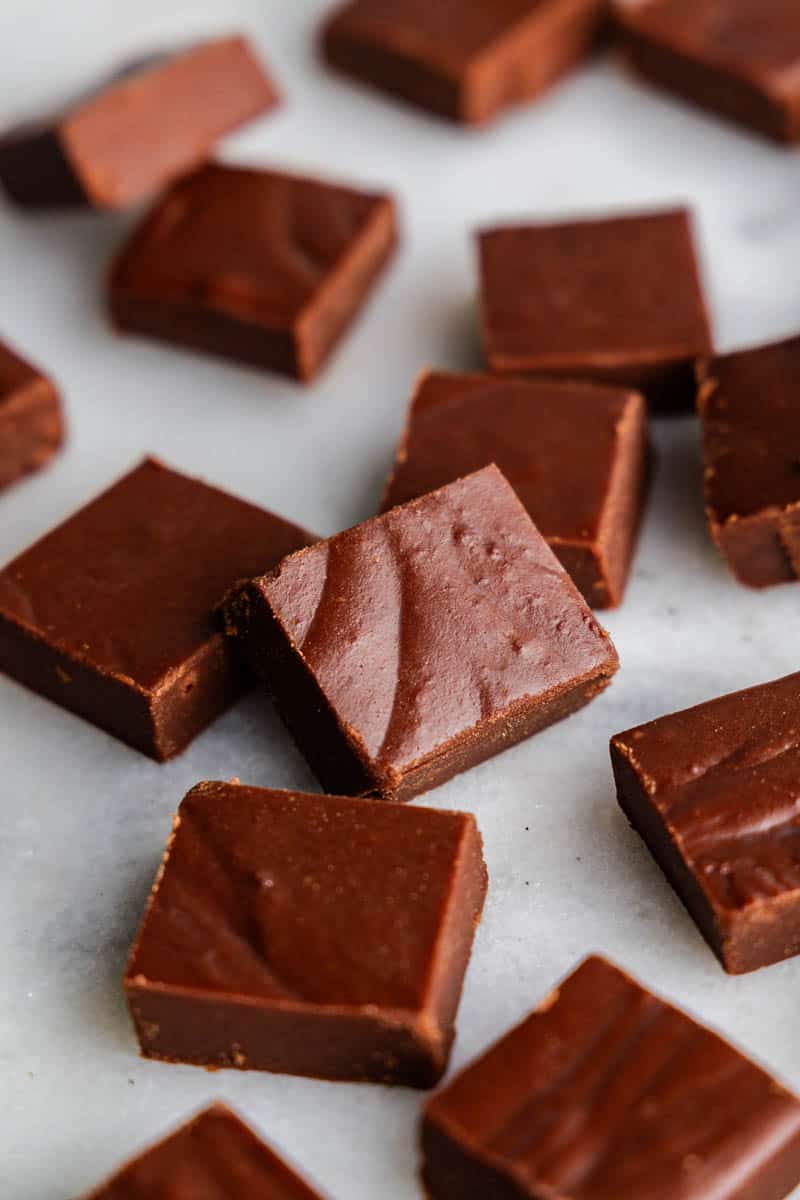
Mastering the Soft-Ball Stage
Reaching the soft-ball stage is crucial for perfect fudge. Attach a candy thermometer to the side of your saucepan, making sure the bulb doesn’t touch the bottom of the pan. Once the mixture reaches 235–238°F, you’ve hit the soft-ball stage.
Hand Testing: If you don’t have a thermometer, you can test by dropping a small spoonful of the hot mixture into a bowl of cold water. If it forms a soft ball that flattens when pressed between your fingers, it’s ready.
Pro Tip: Avoid stirring the fudge mixture once it begins to simmer, as this can cause premature crystallization.
Storage & Freezing Instructions
Refrigerate fudge in an airtight container or wrap it tightly in plastic wrap. Properly stored, it will stay good in the fridge for up to 2 weeks.
Freezing works best with small bricks of fudge rather than individual pieces. Divide an 8×8 pan into 4 larger squares. Wrap each piece individually in plastic wrap, then place them in an airtight, freezer-safe container or resealable freezer bag to prevent freezer burn. Fudge can be frozen for up to 3 months.
To thaw, transfer to the refrigerator for several hours or overnight.

